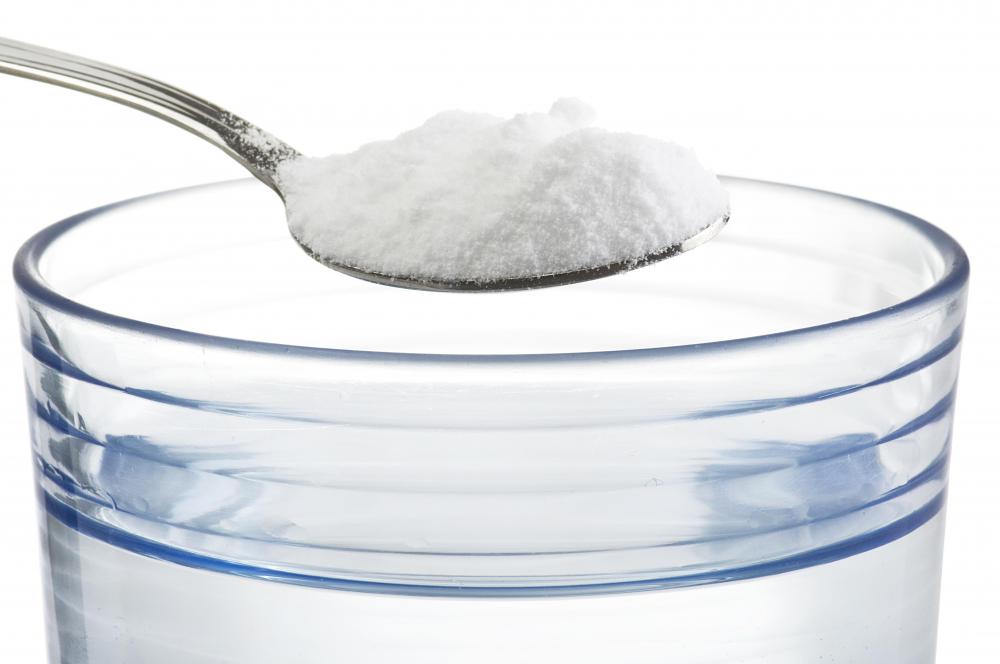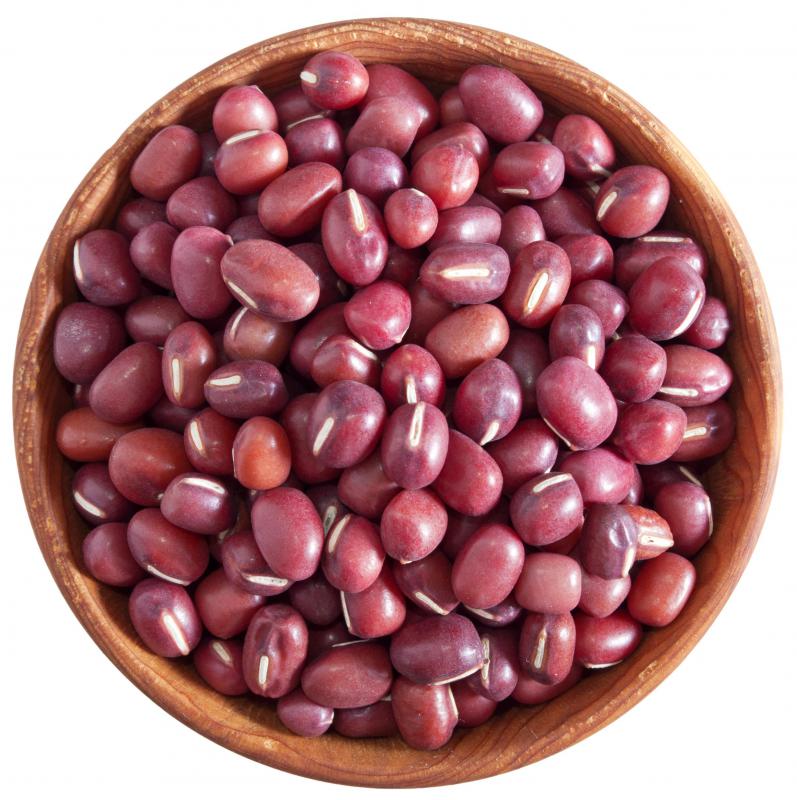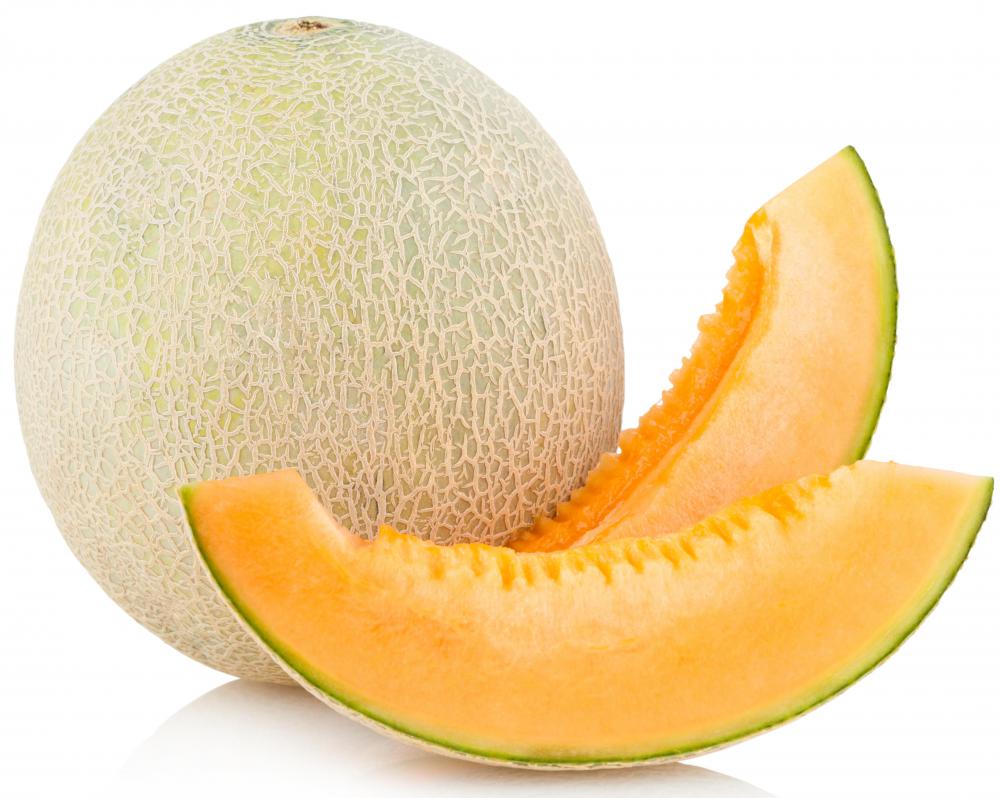At TheHealthBoard, we're committed to delivering accurate, trustworthy information. Our expert-authored content is rigorously fact-checked and sourced from credible authorities. Discover how we uphold the highest standards in providing you with reliable knowledge.
How do I Use Inositol for Anxiety?
To properly use inositol for anxiety, you should start at a low dosage and monitor how your body responds; if necessary, you can take as much as 16,000 to 18,000 mg per day. Inositol is naturally present in many foods, including beans, nuts, cantaloupes, and wheat, but the amount supplied by these sources is minimal. Most people who take this supplement to treat anxiety typically get their daily intake either in tablet or powder form. Once you have found the right dosage for your body, inositol is typically taken in smaller doses throughout the day to maintain calmness and prevent extreme bursts of anxiety.
Inositol is also known as vitamin B8. It is a water-soluble fatty lipid that helps develop strong and healthy cells. Also known as myo-inositol, this member of the B vitamin family has a variety of functions in the human body, including instigating the release of calcium in cells and communicating messages between neural cells. Because it has been shown to aid the transmission of messages along avenues within the central nervous system, it has been widely used as an all-natural treatment for anxiety; research also suggests inositol may lower cholesterol levels, promote hair growth, and slow the advance of Alzheimer's disease.

If you take inositol for anxiety, medical professionals advise starting with 2,000 mg twice a day. After one week, this can be increased to three times per day. During the third week, you can slowly begin to increase the inositol by small amounts to 3,000 mg three times daily; the fourth week, to 4,000 mg three times per day; and the fifth week, 5,000 mg three times each day. In the sixth week, you will reach the full recommended dosage, 6,000 mg three times a day.

You may find that using inositol on its own may not be enough to treat anxiety. Many users take it in conjunction with other vitamins, nutrients, and supplements. Omega-3 supplements, GABA, valerian root, and passiflora have been shown to enhance the effects of inositol in some patients.
There are a few side effects to watch out for when taking this supplement. You may find you have an upset stomach from time to time, but studies have shown this to be a relatively normal side effect and no cause for alarm. Some users report that their appetites greatly increased after starting an inositol regimen. Pregnant women should not take this supplement.
AS FEATURED ON:
AS FEATURED ON:
















Discussion Comments
This is a very good article on inositol. I suffer from purely obsessive OCD and depression, and inositol has been very helpful to my "quality of mind" and life. I have been taking about 14,000 mg per day.
I worked up here slowly starting at 650mg. The dosage seems high but I think it is a mostly gentle and effective nutrient, feels like something different than a "drug." About 98 percent of the time they're very calm and soothing, but rarely I have gotten some tingles and minor side effects from taking it. I find that, for me, it works for about eight hours. So I take it twice daily, at 7 a.m. and again at around 3 p.m.
I'm having sleep issues so I might try taking the second dose much later in the day. Definitely give inositol a fair trial. At first I had strange effects at tiny doses and needed to try a higher dose for about two weeks to see positive effects.
I am in my first month of taking inositol. I am currently maintaining at 2000mg per day and that seems sufficient. I have high anxiety with panic episodes. So far I have gone from 12 panic attacks down to two/three per month. I contribute this improvement to a diet change, the use of inositol and learning relaxation techniques.
I do think it's important to understand that "less" is more, and this is one of the compounds that are okay at a lesser amount. Two side effects are the intestinal and poor appetite now. I recommend inositol as its created a significant improvement once my body assimilated to the modifications.
I've been taking inositol for about six months now for moderate anxiety with occasional bouts of severe anxiety. I had bloodwork done just before starting. My bloodwork beforehand was normal.
After six months I can honestly say it has helped a lot! I worked my way up to 12,000mg (12g) per day (6g, twice a day). Inositol is a vital part of your body and studies have shown absolutely no side effects at this dosage, other than stomach upset in the beginning.
I also started following the paleo diet about six months ago. My hair loss has slowed to a minimum, I have more energy, and my mood has stabilized significantly. I don't feel like myself yet, but I feel like I have made enormous progress.
If anyone here has bipolar or depression, I strongly suggest looking into N-acetylcysteine. Another substance naturally found in your body, one placebo-controlled study on nearly 150 patients showed it decreased depression scores from 19.7 to 11.1 in just eight weeks, with a 99.999 percent confidence interval!! The dose is 1g, twice per day. The study can be found here: "The efficacy of N-acetylcysteine as an adjunctive treatment in bipolar depression: an open label trial.". It is free to check out and is on the government's research search website.
If anyone has any questions, feel free to post here. I am posting this information because I have experienced both anxiety and depression and I know that it can be overcome without the use of potentially dangerous and certainly unpredictable pharmaceutical drugs. Obviously everything I said should not be taken as medical advice, as I am doctor. I speak only from my own experiences.
@fify - I was thinking the same thing you were, as I read this article. It seems like taking 1800 mg of anything a day is an extreme amount! I know inositol is a natural supplement, so you can take more of it than prescription drugs, but too much of anything seems to be bad for everyone.
If inositol is so effective for anxiety, why does it take so much of it to help people? I have anxiety and obsessive compulsive disorder, so I take a generic form of prozac and see a therapist twice a week. I take just 60 mg of prozac, which helps both of my problems a lot, and it is a lot cheaper than vitamins are too.
I also try to eat healthier and exercise more, for natural stress relievers. I guess inositol would be good for mild to moderate anxiety, but it seems it wouldn't be too good for people with severe anxiety. If you have severe anxiety, I would seek a professional's help and see what they recommend. Anxiety or any ailment is something no one should have to go through, especially not alone and not without help.
Wow, 6000 mg, three times a day in the sixth week? That's 18,000 mg per day!
Isn't that too much? I do believe that supplements are beneficial for treating depression and anxiety but that seems like way too much for me. I don't think I cold ever take so much of any supplement. I already have a very sensitive stomach, so I'm sure the side effects would be very bad for such a high dose.
I'm taking an anti-anxiety medication right now and only take 10 mg per day which is enough for me. Why is it necessary to take so much of inositol for it to be effective? Would taking less, like 500 or 1000 mg daily, be totally ineffective?
@Monika - Maybe you should consider seeing a therapist while you are taking the inositol. I know a lot of people prefer to self medicate with natural stuff, but I think you should also consult a medical professional about your anxiety.
From what I understand, there are a lot of different types of B vitamins. I take vitamin B5 for my allergies and it really helps me a lot. I also take a multivitamin that has several other kinds of B vitamins in it.
However, I still suffer from anxiety. If my multivitamin has any insositol in it, it's obviously not enough to make me feel calmer. I think I might look into taking an inositol supplement for my anxiety, in addition to the vitamins I already take. If that doesn't work I'm going to look into getting therapy or something.
It seems like the older I get, the harder it is to go with the flow and not be anxious about things. I have always worried about things and find that this can get the best of me sometimes.
Up to this point, I have been treating my anxiety on my own and trying to control it with eating the right foods and supplements.
I began taking some inositol hoping it would help when I was overly anxious about something. I followed the directions and took it for about a month, but didn't really notice much difference and was still too anxious about things.
I know this has worked well for many people, as I have some friends who just swear by it. I feel like I gave it a fair chance, but think I need to find something else that might give me better results.
I have always taken a multi-vitamin that included inositol in the form of B8. A couple years ago I was going through a very stressful time - I had 2 kids getting married within 2 months of each other. In addition to this, there was a lot of extra things going on at work.
I decided I needed something stronger to help with my anxiety. This wasn't severe anxiety, but I found myself very uptight about everything.
I began adding some inositol supplement to the multi-vitamin I was already taking. I started out gradually, and slowly increased to 15,000 mg a day.
I continued taking this amount for the next few months and felt like I was much calmer and able to take things in stride without getting worked up about small details.
Once my stress level was not so high, I decreased the amount down to about half of what I was taking. I didn't want to completely eliminate it because I felt like it really helped me.
When I feel that I am in a stressful situation, I will increase it again to help me get through the extra stress.
@popcorn - Vitamin B8 (insositol) has really helped me with my anxiety symptoms, so much so that I really believe that some people with anxiety are just suffering from a vitamin deficiency. I also struggled with how to deal with anxiety and tried numerous supplements, but vitamin B8 really did the trick.
On that note, I also combined vitamin B8 with a healthier diet and meditative practices to try and treat my body and mind. I think that anxiety is just as much a chemical issue in your body, as it is a mental one. I feel that people can overcome issues such as general anxiety disorder without always having to get prescribed drugs.
Overcoming anxiety has been really hard for me, but I would like to try some natural anxiety medication before heading into the doctor's office for something stronger. Has anyone found that an over the counter dose of inositol was enough to help you with your anxiety disorder symptoms?
Right now I consider my symptoms of anxiety fairly mild but they are still enough to disrupt my everyday life. I feel like my concerns about my work are very stressful and I am not able to stop worrying about things related to work even if I try. I am hoping that by taking something I may be able to settle my nerves down enough that I can cope better with the ways things are going.
Post your comments